- ALL SERVICES
- • Salesforce Consulting Services
- • Managed Services
- • Simplification of Interfaces
- • Data Migration and Processing
- • Architectural Solutions and Scoping
- • Code Review, QA and Support
- • Applications Development
- • Pre-sales and Solutions Consulting
- • Technical Audit and Support
- • Custom Applications Development
- • AI Apps
BLOG
Sender Authentication Package (SAP) in Marketing Cloud: How to Use it to Improve Brand Awareness
• Date: September 2024 •
Estimated reading time: 8 minutes
Estimated reading time: 8 minutes
Subscribe for more useful content
We promise we'll not spam your mailbox!
By submitting you agree to receive a newsletter from Twistellar. You can unsubscribe anytime.
To increase the chances of your emails reaching their intended recipients, they should be authenticated, not just validated. Authentication is serious to Google and other Internet service providers (ISPs) rigorously check Domain Name System (DNS) records for industry-standard authentication protocols. Properly authenticated emails are less likely to be marked as spam, protecting your brand from spoofing and phishing attacks and reducing spam complaints.
This article will explore the Sender Authentication Package (SAP) in Salesforce Marketing Cloud and how it improves email deliverability and brand recognition for your campaigns.
This guide is intended for those currently using or planning to use Salesforce Marketing Cloud to manage their email campaigns.
Contents:
- What is Marketing Cloud Sender Authentication Package?
- Key Features of Sender Authentication Package (SAP) in Marketing Cloud
- SMS vs. Email Sender Authentication Package: The Difference
- How Do You Set Up the Sender Authentication Package (SAP)?
- Which Customers Would Benefit Most from Purchasing a Sender Authentication Package?
- FAQ: Sender Authentication Package Marketing Cloud
What is Marketing Cloud Sender Authentication Package?
SAP is a specialized add-on for Salesforce Marketing Cloud rather than a core part of it. By enabling domain authentication and management features, SAP enhances email deliverability and brand consistency.
In other words, Salesforce SAP increases email deliverability to recipients' inboxes and boosts your company's visibility by replacing Marketing Cloud references with your domain.
Although it integrates seamlessly with Salesforce Marketing Cloud, SAP must be purchased separately and configured to benefit from these advanced email authentication features.
Please note: To avoid confusion, SAP Integration generally refers to integrating SAP (the enterprise software for business operations) with Salesforce or other systems.
The Sender Authentication Package in Salesforce Marketing Cloud is a package that enhances email deliverability and domain authentication through features like dedicated IP addresses and custom domains, as well as compliance with email authentication protocols like SPF, DKIM, and Sender ID.
The Sender Authentication Package in Salesforce Marketing Cloud is a package that enhances email deliverability and domain authentication through features like dedicated IP addresses and custom domains, as well as compliance with email authentication protocols like SPF, DKIM, and Sender ID.
Key Features of Sender Authentication Package (SAP) in Marketing Cloud
The customer has a number of touchpoints, so all your messages have to hit the mark. This is how the SAP does it:
Private Domain (from Address)
Message authentication ensures that ISPs recognize your emails as legitimate. The Private Domain feature, a paid service in Salesforce Marketing Cloud, enables this by providing Sender Policy Framework (SPF) and DKIM (DomainKeys Identified Mail) authentication for your sending domain.
Using a dedicated sending domain through SAP strengthens your brand's reputation. It allows for adding multiple domains and branding for each entity within your organization, which is particularly beneficial for companies managing various brands. These domains require separate setups and may incur extra costs.
Authentication Protocols
Several protocols are ensuring the emails your customers receive are legit:
SPF (Sender Policy Framework): This protocol specifies which mail servers may send emails on behalf of your domain. Validating the sender's IP address against the domain's SPF record helps prevent email spoofing and phishing.
DKIM (DomainKeys Identified Mail): This encryption-based authentication protocol enables the recipient to verify that the email was sent by the domain owner. To validate the authenticity of the email, the recipient's server attaches a digital signature.
Sender ID: Similar to SPF, Sender ID verifies the origin of an email by the package sender address authentication of the domain name against the IP address of the mail server, adding another layer of security. It focuses on the sender's identity as seen by the recipient.
SPF and DKIM satisfy DMARC (Domain-based Message Authentication, Reporting, and Conformance) requirements. SPF allows you to define which IP addresses are authorized to send emails on behalf of your domain. At the same time, DKIM uses a cryptographic signature to verify the sender's identity and prevent spoofing.
Subdomain Delegation
Subdomain delegation involves configuring DNS settings via Canonical Name (CNAME) records, enabling seamless integration with Salesforce Marketing Cloud. By delegating subdomains, you ensure that your email campaigns are sent from authenticated subdomains of your primary domain, contributing to its legitimacy and consistency.
This setup allows Salesforce to manage DNS-related tasks for your subdomain, ensuring proper authentication and alignment with email sending best practices. It is handy for organizations with complex domain structures or multiple brands that require precise control over email sending and branding.
Account Branding
In email marketing, branding is crucial because recognizable senders are less likely to be flagged as spam. By using link and image wrapping, Salesforce Marketing Cloud Engagement allows you to replace default domains (like exacttarget.com) with your authenticated domain. This ensures all links and images in your emails are aligned with your brand, enhancing consistency and trust.
For example, a company could change its links from a generic URL to branded ones, like imagescompanyname.com, making the entire email experience more cohesive and professional.

Image source: Domain Authentication and SAP | Salesforce Trailhead

Image source: Domain Authentication and SAP | Salesforce Trailhead
Dedicated IP vs. Shared IP
The dedicated IP option grants you complete control over your sending reputation, crucial for high-volume email senders who dispatch 250,000+ emails per month. It ensures that your IP reputation isn't influenced by other users' practices, which is important for maintaining high deliverability rates. Businesses with significant email marketing efforts, such as large retail companies, would benefit most from this setup.
Shared IP is when multiple senders share the same IP address, which is a more cost-effective option. While this option can reduce costs, it comes with a potential risk since other users sharing the same IP may impact your sending reputation. This setup might be suitable for smaller businesses or those with lower email volumes that don't justify the cost of a dedicated IP.
Reply Mail Management (RMM)
Reply Mail Management (RMM) allows you to manage email responses efficiently through Salesforce's interface. It automates the process of filtering auto-replies, handling unsubscribe requests, and even triggering automated responses based on specific criteria.
This feature is handy for businesses that handle large customer interactions via email, such as e-commerce platforms or customer service teams.
Multiple Domains
SAP in Salesforce Marketing Cloud supports adding multiple domains, ideal for organizations managing several brands under one umbrella. Each brand can have its unique email domain, helping to distinguish between them. However, each domain requires a separate setup, which might incur additional costs and administrative effort.
This feature would benefit conglomerates, holding companies, or digital agencies that manage multiple clients or brands, as it allows for clear brand segmentation and better email deliverability management.

Key Features of SAP in Marketing Cloud
SMS vs. Email Sender Authentication Package: The Difference
In Salesforce, SAP primarily focuses on email authentication, ensuring emails are delivered from authenticated domains, thereby improving deliverability and brand consistency.
However, Salesforce does not offer a specific "Sender Authentication Package" for SMS like it does for emails. SMS sender authentication generally involves using dedicated shortcodes or alphanumeric sender IDs, which help identify and legitimize the message source.
Unlike email, SMS doesn’t require SPF or DKIM protocols but relies on brand recognition through sender IDs to ensure message trustworthiness.
How Do You Set Up the Sender Authentication Package (SAP)?
- If SAP Marketing Cloud is not included in your current contract, you have to contact Salesforce support to purchase it.
- To complete the setup form, Provide the company name, contact details, desired IP addresses (for Dedicated IP), sender domain, subdomains for tracking and DKIM signatures, and DNS record access for SPF, DKIM, and CNAME setup.
Ideally, to navigate the SFMC sender authentication package technical requirements quickly and without a hitch and configure it strictly according to your business needs, consider working with a certified Salesforce Marketing Cloud Implementation Partner.
Which Customers Would Benefit Most from Purchasing a Sender Authentication Package?
Those prioritizing email deliverability and brand consistency would benefit most from the Sender Authentication Package in Salesforce. It includes companies with large-scale email operations that need to maintain a strong domain reputation and businesses in general that want to ensure that their emails reach the intended inbox rather than getting flagged as spam.
For example, e-commerce businesses that send high volumes of promotional emails would benefit from SAP as it helps to authenticate their email domains, reducing the chances of their messages being marked as spam.
Similarly, financial services companies that send sensitive information via email must ensure their communications are trusted and secure. SAP's authentication features, including SPF, DKIM, and custom domain branding, enhance the credibility of their emails, helping to protect their brand reputation and customer trust.
Another possible utilization of the Sender Authentication Package (Salesforce Marketing Cloud) is for healthcare organizations, which must adhere to strict compliance standards. By using authenticated email domains and managing multiple subdomains, they can ensure that their communications are consistent and compliant with industry regulations, thereby enhancing patient engagement and trust.
Conclusion
Integrating SAP with Salesforce Marketing Cloud is essential for maintaining high email deliverability and brand consistency. Implementing these enhancements not only improves the technical aspects of your campaigns but also significantly boosts audience trust and loyalty.
Here are additional resources on the topic:
FAQ: Sender Authentication Package Marketing Cloud
The SFMC Sender Authentication Package (SAP) includes key components like a dedicated sending domain, which strengthens your brand’s reputation by aligning emails with your domain, and authentication protocols such as SPF, DKIM, and DMARC. These protocols enhance deliverability and reduce the chances of emails being marked as spam. Additionally, SAP offers subdomain delegation and branded links, which replace default URLs with your domain, ensuring a consistent brand experience.
To verify a sender profile in Marketing Cloud, navigate to Email Studio, select Administration, and then Senders. Here, you'll find the list of available sender profiles. You can check the verification status for each profile and, if necessary, follow the instructions to complete verification. This ensures that your emails are sent from authenticated and trusted addresses.
An authentication package, like the Sender Authentication Package (Salesforce Marketing Cloud), is a set of tools and protocols designed to authenticate your emails. It typically includes features like SPF, DKIM, and DMARC, which help verify that emails are sent from your authorized domain. This improves deliverability and protects your brand from spoofing and phishing attacks.
To set up DKIM, access the DKIM settings under the Administration tab. To use DKIM, you will need to publish the generated key to your DNS records. Once published, return to Marketing Cloud to activate the DKIM configuration. This ensures that your emails are signed with a cryptographic signature, verifying their authenticity.
A sender profile in Marketing Cloud is a configurable setting that defines the From name, email address, and reply address for your email sends. It helps maintain consistency in your branding and ensures that recipients recognize the source of the email. You can create multiple sender profiles to manage different campaigns or brands.
A dynamic sender profile in Salesforce Marketing Cloud allows you to personalize the "From" name and email address based on data from your subscribers. This means you can customize who the email appears to come from depending on the recipient, enhancing personalization and engagement.
Twistellar's team has carried out a number of industry-focused Salesforce implementations, and we are always open
to discuss your project!
to discuss your project!
Our deep understanding of Salesforce platform ensures successful handling of projects in any domain
By submitting you agree to receive a newsletter from Twistellar. You can unsubscribe anytime.
Our Best Articles and Salesforce Overviews
Feeling like teaming up with us at Twistellar? We are excited too! Whether you'd like to customize your org, build a bespoke application or integrate a third-party tool, Twistellar is ready to help you.
Get in touch to discuss your Salesforce ideas!


